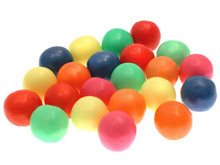
Top stories






More news

ESG & Sustainability
#AGES2026: How to back Africa's next-gen green and blue entrepreneurs

















Logistics & Transport
#Budget2026: Road freight logistics and what it means for consumers


The boy also complained of abdominal pains, a desire to urinate and had prickling sensations in his legs. He panted for breath, had a racing heartbeat of 147 beats per minute and raised blood pressure.
After tests for cocaine, heroin and amphetamines and other analyses came back negative, the boy was kept overnight for observation. He was released the following day after his condition improved.
A few days later, he returned for an outpatients' appointment, and seemed sleepy and sluggish. His mother said he had lost interest in any activity and had been absent from school.
The likely cause, according to the authors, was stimulant chewing gum that was high in caffeine.
"Our patient admitted consuming two packets of the chewing gum, containing 320 milligrams (of) caffeine, in four hours," they report.
For a 45-kilo (99-pound) child, "this is the equivalent to about 10 cups of tea in a 70-kilo (154-pound) adult."
The chewing gum also contained guarana, sweeteners and other ingredients.
But these were probably not to blame, as their doses were low and the boy's symptoms were consistent with a caffeine overdose.
Children are sensitive to high doses of caffeine because they weigh less than adults and are less likely to be regularly exposed to coffee and tea, the case study said.
"The risk of intoxication is high in children and teenagers in view of general caffeine naivety and the unrestricted sale of these substances," said the report, written by Francesco Natale, a doctor at the Second University of Naples and the Monaldi Hospital.
Source: AFP
Published courtesy of